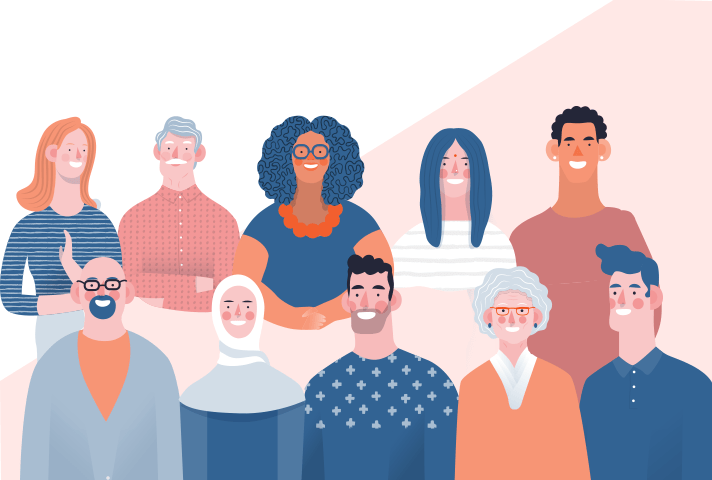 Here is a story about how far we have come in America, from January 2025, also featuring an earlier piece about diversity washing:
Here is a story about how far we have come in America, from January 2025, also featuring an earlier piece about diversity washing:
“Companies scaling back diversity, equity, and inclusion programs have started a trend.
“Right-wingers have been railing against DEI for a while now, and one of the loudest is Robby Starbuck, a failed filmmaker and failed congressional candidate. He objects to companies sponsoring Pride events, supporting transgender employees, taking action against climate change, and more. Oh, and he thinks toxic chemicals turn people queer and that the COVID-19 vaccine is what killed Matthew Perry.”
Climate change advocates are DEI killjoys?
“But the anti-DEI movement is bigger than just Starbuck. ‘Business experts have told CNN that Starbuck’s activism alone does not fully explain these decisions, and some companies’ commitments to diversity and inclusion were thin to start.”
“Diversity washing” is the new greenwashing (2023)
“What’s that? According to this paper authored by academics from several institutions, including Chicago Booth and the Rock Center for Corporate Governance at Stanford, there are a number of companies that actively promote their commitments to diversity, equity, and inclusion in their public communications, but in actuality, their hiring practices, well, don’t quite measure up.
“The authors label companies with significant discrepancies—companies that discuss diversity more than their actual employee gender and racial diversity warrants—as ‘diversity washers.’ What’s more, the authors found, companies that engaged in diversity washing received better ratings from ESG rating firms and were often financed by ESG-focused funds, even though these companies were ‘more likely to incur discrimination violations and pay larger fines for these actions.'”
Everything is the fault of DEI.
From what I’ve seen in right-wing media, DEI hires caused the fires in Southern California to expand, even as the Los Angeles fire chief has two decades of fire fighting experience.
Strangely enough, DEI seems to have nothing to do with all the annual hurricane damage in locations like Texas, Florida, and Speaker Mike Johnson’s Louisiana. That’s why we need “standards.” Before we give money to those blue-state people, they’ll have to fix whatever systems they broke. But those folks on the Gulf of Mexico should receive help immediately.
FOTUS instantly blamed DEI and Biden for the mid-air collision over the Potomac River on January 29, saying that standards for air traffic controllers had been too lax, including the FAA hiring people with “severe intellectual” and “psychiatric” disabilities. However, he cites no evidence because he likes saying stuff.
The clear message is that if the person in charge is black or a woman or gay, and they falter, they must have only gotten the job because of “reverse discrimination.” When you are a competent person, this tension can be exhausting, but this is nothing new. Read the description of the 1969 novel The Spook Who Sat By The Door by Sam Greenlee.
Nasty (and not in a good way)
Kelly hit on something. “They aren’t looking to reverse progressive policy because they disagree with it. They are looking to pass as much harmful policy as possible because they are angry with America for ever having passed it in the first place, and they want to punish Americans for it.”
There are SO many examples. I’ll pick one from MedPage Today about the CDC removing certain pages:
- Health Disparities Among LGBTQ Youth (archived page)
- Environmental Justice | Tracking Program (archived)
- Safer Food Choices for Pregnant People (archived)
- Interim Clinical Considerations for Use of Vaccine for Mpox Prevention (archived)
- Preventing HIV (archived)
- HIV Risk Behaviors (archived)
- Fast Facts: HIV and Transgender People (archived)
- Fast Facts: HIV in the US by Race and Ethnicity (archived)
“In addition, tools to estimate and reduce the risk of HIV were also down at the time of writing, as was a page on CDC’s efforts to address racism as a driver of health disparities.”
So, as I understand it, DEI is the problem, even though it wasn’t applied as rigorously as some people seem to think. We should be selecting competent folks like Secretary of Defense Pete Hegseth. Hah! Jonathan Chait wrote in the Atlantic [paywall] that FOTUS “is promising a return to meritocracy—while staffing his government with underqualified loyalists.”
I will posit that not being in favor of DEI isn’t inherently racist/sexist/homophobic, though I could make a case for its value. Conversely, blaming everything that goes wrong on DEI is precisely racist, sexist, and homophobic.
DEI is
From a post on Facebook, which I pared down somewhat: What DEI Is :
Now that DEI has driven from parts of corporate America and the federal government, inequality has been quashed! Yeah, right.

 I was talking to a White friend of mine recently. During the conversation, they said that all those television advertisements showing diverse people, folks of many colors and sizes, and abilities, are “pandering.” This took me aback.
I was talking to a White friend of mine recently. During the conversation, they said that all those television advertisements showing diverse people, folks of many colors and sizes, and abilities, are “pandering.” This took me aback. Uthaclena poses a question for Ask Roger Anything.
Uthaclena poses a question for Ask Roger Anything.